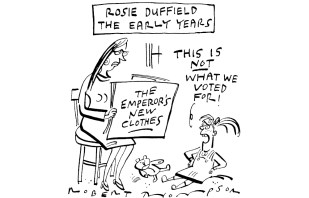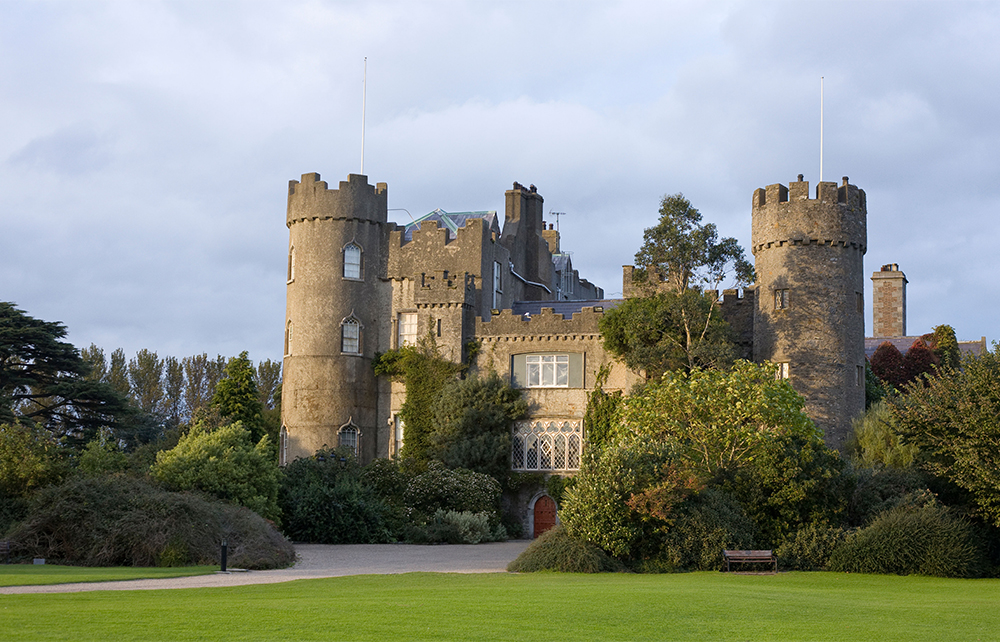In April 1967 Tony Scotland, a cub reporter for Australia’s ABC television news, drove with a cameraman from Hobart to a sheep station in Fingal to interview Lord Talbot de Malahide, an Anglo-Irish aristocrat who had edited a book about Tasmanian flora.
This was a delicate assignment. Lord Talbot was a retired British ambassador to Laos who divided his time between his family’s Tasmanian property and one of Ireland’s grandest castles. He was fearsomely well-connected, peppery and ‘not good with people’. ABC had been trying for years to interview him, and he only grudgingly allowed in the cameras to publicise the book. Scotland, a 22-year-old English public schoolboy, wondered why he’d been given the job. His cameraman smiled knowingly.
Undercover, an ingenious combination of memoir and biography, begins with Scotland being greeted imperiously by his host and grilled on ‘where I came from, who my people were, where I’d been to school’. He was flattered to receive so much attention from the 4th Baron Talbot de Malahide in the UK peerage, who was also the 7th Baron Talbot of Malahide in the Irish peerage, but preferred the English title with its romantic ‘de’. Milo Talbot, born in 1912, had inherited the titles in 1948 when his uncle, who kept a fine stable at Malahide Castle in County Dublin, dropped dead of a heart attack after a titanic row with his groom. His successor also had quite a temper, but his frostiness evaporated over lunch with his interviewer.
It didn’t take Scotland long to work out why. His eye fell on some books stacked together on the bottom shelf of Talbot’s library. Corydon, André Gide’s Socratic defence of ‘Greek love’, was next to The Confusions of Young Törless, Robert Musil’s homoerotic novel set in an Austrian boarding school, and City of Night, John Rechy’s account of a male prostitute’s steamy adventures.
No one who had been close to Talbot at Winchester or Cambridge would have been too surprised. When he arrived at Trinity College in 1932 one of his first new friends was ‘an untidy but engaging Etonian with dirty fingernails’ – Guy Burgess. Scotland writes:
Whether their friendship became anything more isn’t known, but it’s most unlikely that Burgess wouldn’t have tried to coax the chilly Wykehamist into bed, for he was a serial, and uncommonly successful, seducer.
Burgess introduced Talbot to Anthony Blunt, who became a lifelong friend. Talbot had been dead for several years when the surveyor of the Queen’s Pictures was publicly unmasked as a traitor in 1979, and thus was spared the media speculation that the Hereditary Lord Admiral of Malahide and Adjacent Seas had been the Fifth Man. Scotland thinks it unlikely that this stiff-necked High Tory had any communist sympathies – but it’s difficult to prove, since Talbot worked in secret intelligence. His personal file, along with other documents relating to the Cambridge spy ring, is still conveniently exempted from the Freedom of Information Act.
Undercover’s chapters alternate between an investigation of Talbot’s mysterious career at the Foreign Office, during which he tried to clean up the spectacular mess left by his one-time mentor Burgess, and Scotland’s account of his six-year friendship with Talbot, who died, aged 60, during a cruise of the Greek islands.
Scotland, who by the early 1970s had become an elegant and unflappable presenter on BBC Radio 3, started out as one of Talbot’s ‘puppies’ – young men on whom he had a crush. This was not as sinister as it sounds. The older man was priggish and peculiar about sex, as closet queens often are, and never laid a finger on Scotland or any other puppy. He did, however, succeed in persuading Scotland to undergo a course of hormone treatment to ensure that he never drifted into promiscuity. The historian Philip Ziegler, Talbot’s assistant in the diplomatic service, went to his grave unaware that His Lordship had been hopelessly in love with him.

One of the joys of Undercover is Scotland’s depiction of the Anglo-Irish twilight. When he dined at Malahide Castle he would sit with Talbot at one end of an enormous table while the peer’s sister Rosie, ‘as reserved and rigid as her brother’, ate in silence at the other. She slept in a turret next to a copy of Debrett’s Peerage, having somehow managed to acquire the style of ‘the Honourable’ by Royal Warrant even though her father had died before inheriting the barony.
This is a lovely book. Scotland has the beady eye of James Lees-Milne without his streak of cruelty. There are so many neat sketches of minor characters that we’re spoilt for choice; but I think my favourite is of Dr Winifred Curtis, Talbot’s venerable adviser on Tasmanian botany, who, while searching for rare varieties of alpine bolster plant, would periodically fling herself to the ground ‘with a cry of “Arrgh!”, as though she’d been shot’.







Comments